The Mississippi Miracle
How investing in teachers, reading, and accountability turned one of America’s lowest-performing school systems into a model for the nation.
For decades, Mississippi has consistently ranked at the bottom of nearly every education ranking. Low reading proficiency, high poverty, and chronic underinvestment in teachers reinforced the narrative that improvement was out of reach.
Then, something changed. In 2013, Mississippi lawmakers passed the Literacy-Based Promotion Act (LBPA). This legislation was a sweeping early-literacy policy designed to ensure that every child could read by the end of third grade. The act required schools to identify struggling readers early, provide targeted interventions, and, controversially, retain third graders who were not yet proficient in reading.
Many critics predicted failure. Instead, within just six years, Mississippi became the fastest-improving state in the nation on the National Assessment of Educational Progress (NAEP). Between 2013 and 2019, fourth-grade reading scores rose by 10 points, and math scores climbed nearly as much, while national averages stagnated. When adjusted for poverty and demographics, Mississippi moved from near last to the top ten in the country for fourth-grade reading.
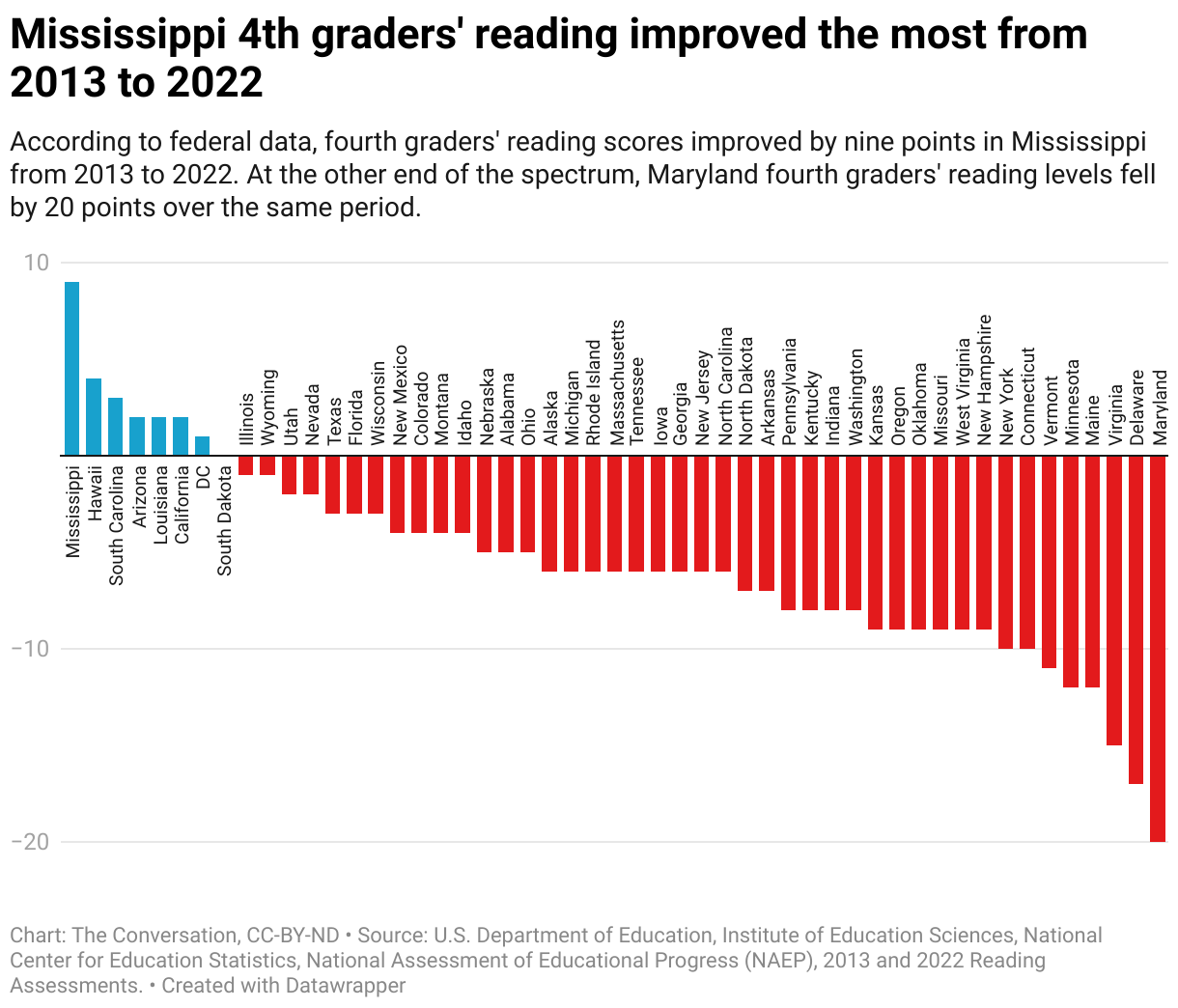
This progress came not from a single silver bullet but from a systemwide investment in teachers. The state funded reading coaches in every elementary school, overhauled teacher-training programs to emphasize the science of reading, and provided ongoing professional development focused on phonemic awareness and decoding skills.
The message was clear: literacy is everyone’s job.
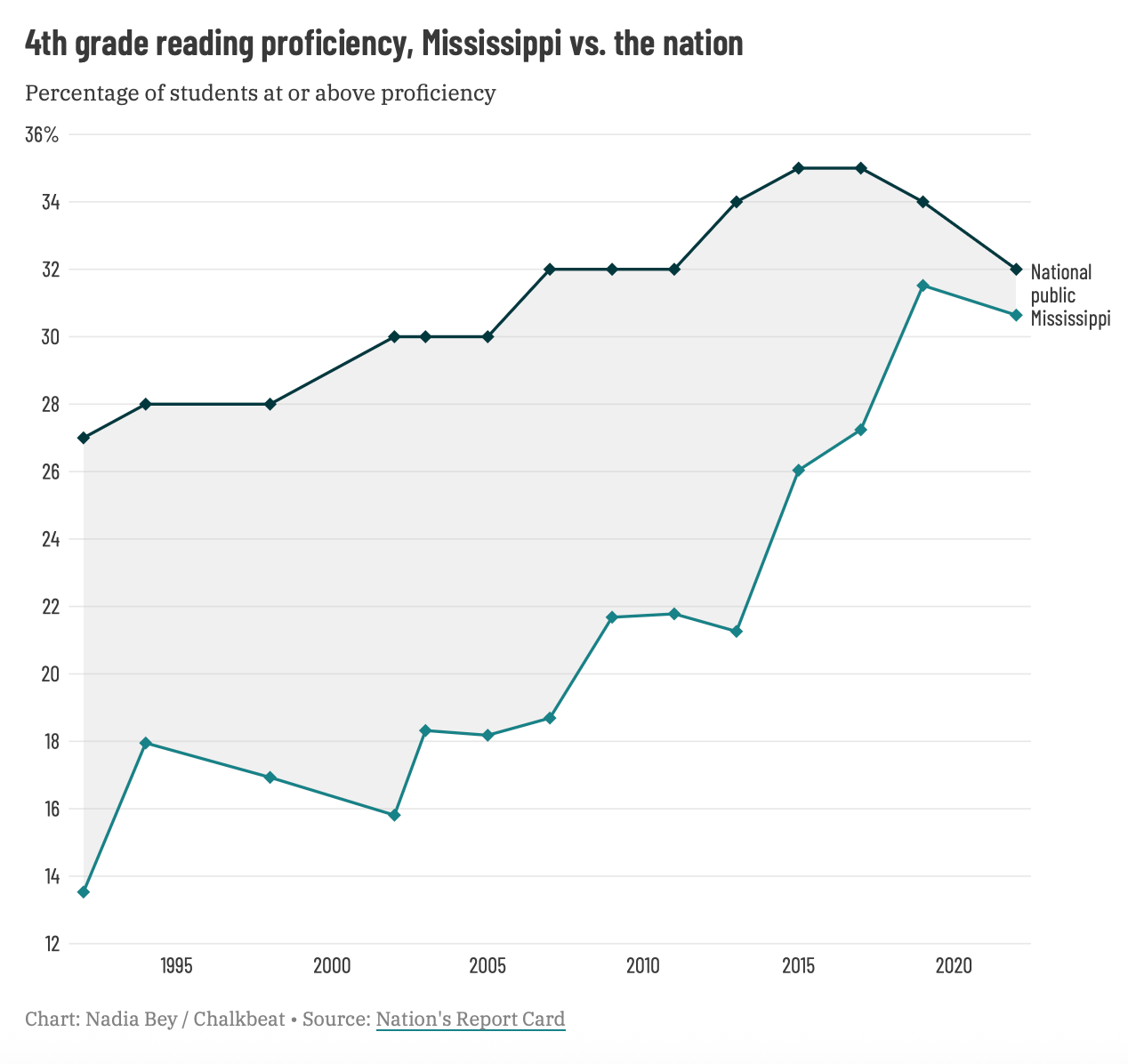
Investment in Human Capital
The Mississippi Miracle is more than an education story; it’s an economics story about investment and return. It is even more critical today than ever before. This investment in education paid off for Mississippi’s legislature and citizens.
Human capital theory suggests that skills drive productivity and wages. Literacy sits at the base of that pyramid. Without it, job training, financial education, and higher education all rest on fragile ground.
Mississippi’s approach essentially treated early reading as infrastructure, a public investment yielding long-term returns. The state spent on teacher training and reading coaches much the way a government might spend on bridges or broadband, knowing that the benefits accumulate over time.
Early results suggest it worked. Better readers become better students, graduate at higher rates, and participate more fully in the labor market. A 2023 analysis from the Urban Institute found that, when controlling for poverty, Mississippi now performs above the national average in both reading and math.
Mississippi Reading by the Numbers
Side notes:
Over 10,000 teachers trained in evidence-based reading instruction.
75 reading coaches deployed statewide.
Third-grade retention rate is approximately 6%.
Criticism and Context
While many are celebrating the Mississippi Miracle as a model for reform, others urge caution before declaring victory.
Retention controversy: The policy that requires holding back third graders who fail to meet reading benchmarks is one of its most debated features. Supporters say it gives struggling students the time they need to catch up; critics argue it risks stigmatizing children and disproportionately affects students from low-income families or those with learning differences.
Long-term outcomes unclear: Skeptics also question whether early gains persist. Some note that Mississippi’s eighth-grade test scores, while improved, still lag the national average. It remains uncertain whether early reading success translates into sustained academic achievement or long-term economic mobility.
Attribution challenges: Another open question is why the state’s gains were so large when other states implemented similar literacy laws with less success. Analysts point to a combination of consistent leadership, alignment of state standards, and deep investment in teachers. Still, as Harvard’s Andrew Ho cautions, it’s rare to see such dramatic improvement without some confounding factors, like test alignment or demographic shifts.
The lesson: Mississippi’s story is real, but it’s also complex. It’s a policy laboratory, not a miracle cure. The challenge for other states is not to copy Mississippi’s law word-for-word, but to emulate its long-term commitment to teacher quality, coherence, and accountability.
The Bottom Line
Mississippi’s transformation offers a lesson that extends far beyond state borders: Early and consistent investment in literacy pays off.
The state didn’t find a miracle; it created one through teacher empowerment, evidence-based instruction, and the courage to demand proficiency before promotion. Investment in human capital is akin to infrastructure investments; the costs are realized today, but the gains are far in the long run. This makes it a challenging investment for sitting politicians, as while they will bear the costs, the benefits will be claimed by the politicians who will replace them.
Whether the goal is reading comprehension or financial literacy, success depends on providing students with the tools to interpret the world around them.
If Mississippi can rise from last to leader in a decade, imagine what we can achieve by investing in education.
Connecting the News To Financial Literacy Initiatives
These outcomes align with what we’ve seen in our own work with the Danny Dollar Academy, which was developed in collaboration with the Haile College of Business, Federal Reserve Bank of Cleveland, and author Ty Allan Jackson. We started from the same premise: you can’t build financial literacy without reading literacy.
Through Jackson’s book, Danny Dollar Millionaire Extraordinaire, students learn core economic and financial concepts, saving, investing, and entrepreneurship, by reading an engaging narrative about a young boy who turns an idea into a business. The program trains teachers, provides lesson guides, and links literacy with economic empowerment.
Like Mississippi’s teachers, the educators we work with are not just teaching content; they are building capacity. They demonstrate that economic mobility begins with comprehension. Danny Dollar Academy continues its efforts through the Mississippi Council on Economic Education.
Mississippi Council on Economic Education
Last year, through the Mississippi Council on Economic Education, 980 students participated in the Danny Dollar Academy. You can learn more about their programs through their annual report, and educators can join their workshop through their website.
Thanks to Selena Swartzfager, President of the Mississippi Council, for keeping this program going and growing.


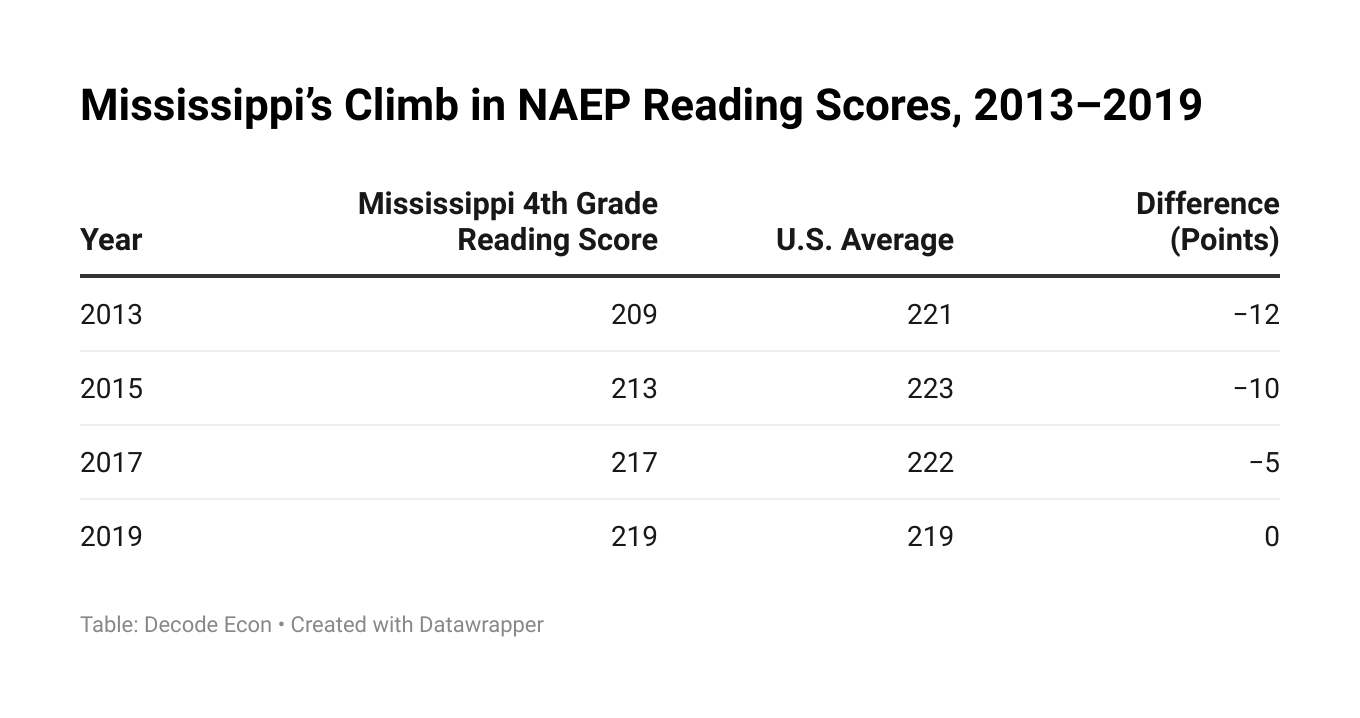
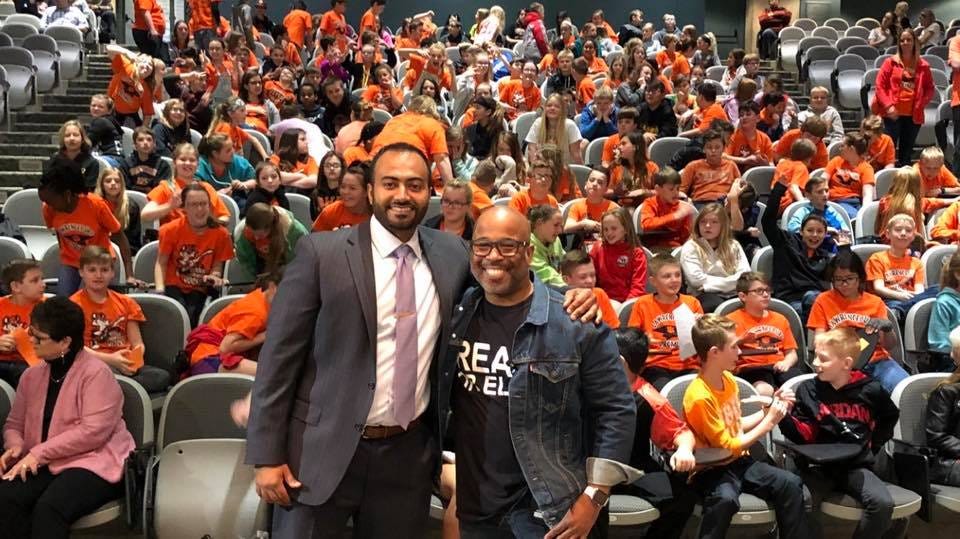
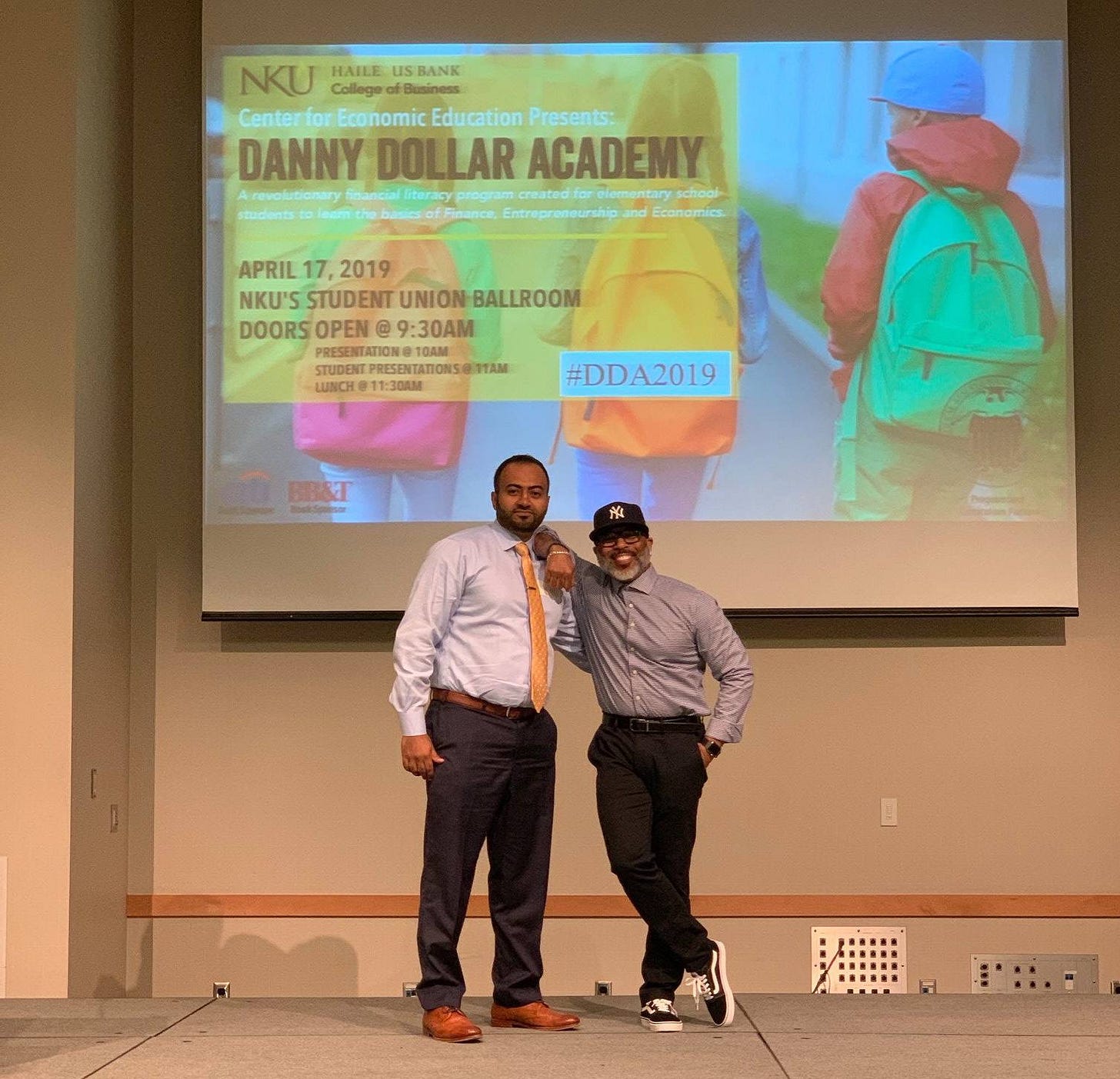
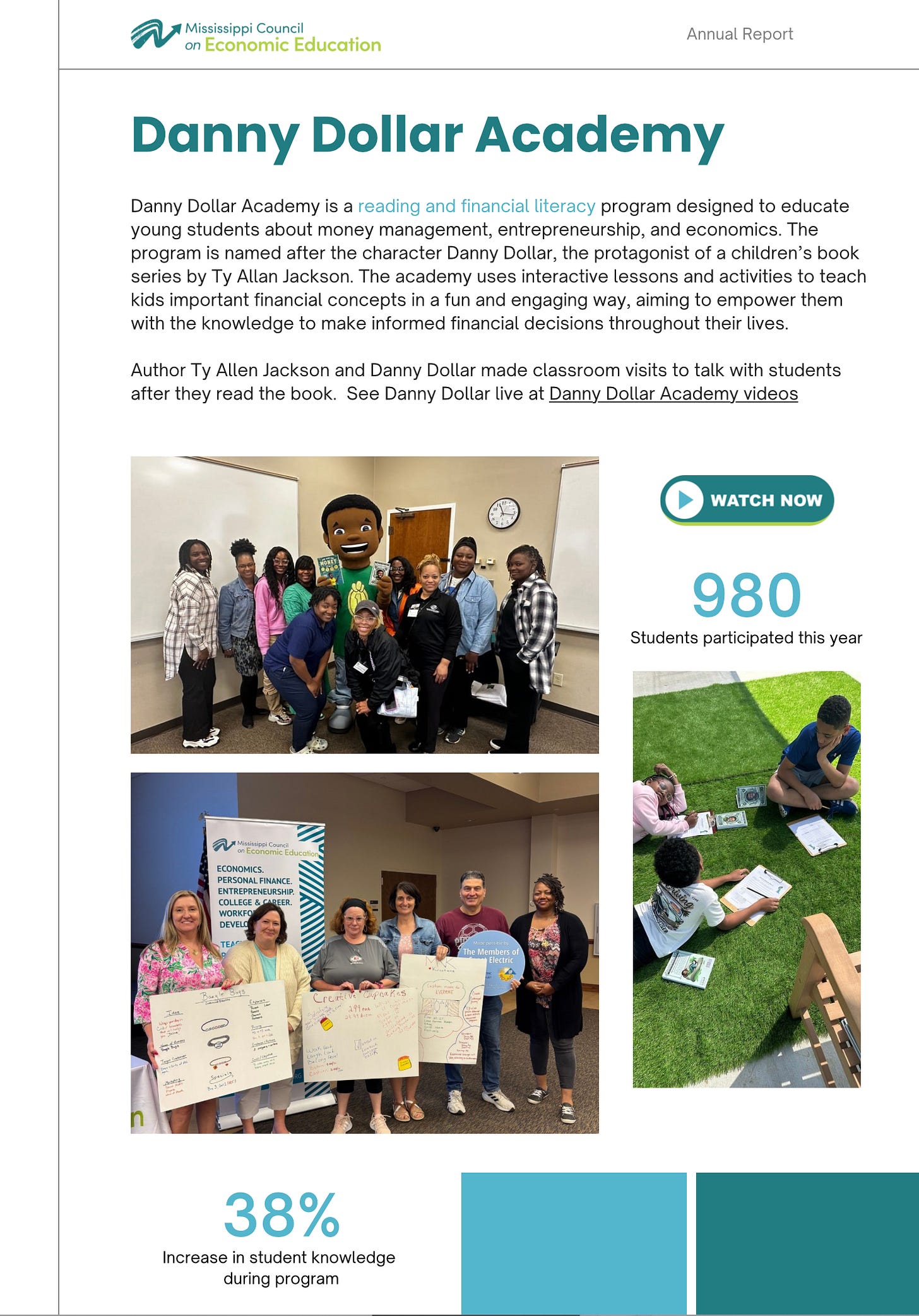
I have been wanting to see a post on this. This is fantastic (Mississippi's outcome and your post)!
I fear we will feel the effects in the missing education in 10 years but im glad to know that Mississippi will not be included. This is a testament that investments matters. I am hoping that more states are able to overcome the rising challenges and fund their schools. Education is the great equalizer.